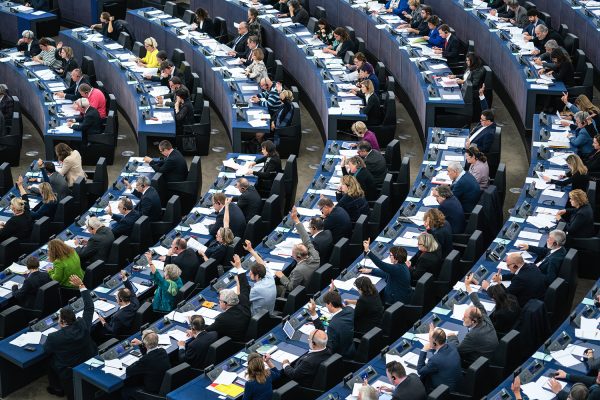
The European Parliament narrowly approved a new nature-restoration law on Wednesday. 336 lawmakers, mostly from the center-left, supported a European Commission proposal to restore 20 percent of Europe’s degraded ecosystems by 2030 and all areas deemed in need of restoration by 2050. 300 lawmakers from the conservative European People’s Party (EPP) and Euroskeptic right voted against it.
But to make the proposal palatable to the centrist Renew group, the obligations for member states were watered down and farm land was excluded from the restoration goals.
Liberals from Finland, Germany and the Netherlands still voted against the bill, fearing a repetition of the situation in the Netherlands, where a strict interpretation of existing EU conservation law has slowed construction and thrown thousands of livestock farmers into uncertainty.
In a lesser-noticed vote, the center-right also excluded most livestock farmers from stricter EU targets for the reduction of greenhouse gas emissions.
Obligation stripped from final version
Parliament stripped an obligation for EU member states to ensure protected ecosystems don’t deteriorate. The version of the law that passed merely requires governments to demonstrate efforts to prevent deterioration.
According to the European Environment Agency, only 15 percent of habitats protected under EU law are in good condition. Peat- and wetlands and dunes are in the worst condition due to pollution from agriculture and industry. One in three European bee and butterfly species are in decline. One in ten are on the verge of extinction. 71 percent of fish and 60 percent of amphibians have suffered a decline in the past decade despite EU fishing quotas.
Judges in the Netherlands have put a near-freeze on agricultural, building and industrial activity in proximity to conservation areas that are in poor condition. That has also slowed the country’s transition to clean energy, since new electric grids and solar parks can’t get built. The government’s solution is reduce livestock, the primary source of ammonia emissions which are lethal to certain plant- and wildlife, but that has stirred opposition from farmers. A new political party, the Farmer-Citizen Movement, has surpassed the Christian Democrats, the Dutch branch of the EPP, in the polls.
Less river and farmland restoration
Parliament also cut the goal for restoration of river ecosystems from 25,000 to 20,000 kilometers by 2030.
And it took out binding objectives for the restoration of agricultural ecosystems, including a 10 percent share for farm areas with high-diversity landscape features EU-wide.
Conservative groups succeeded in inserting an amendment that would put nature-restoration goals on hold if food prices rose more than 10 percent in a year or EU food production fell more than 5 percent.
Since parliament’s version now differs from the law adopted by the European Council of agricultural ministers, the EU institutions need to hash out a compromise.
Most farms excluded from emissions goal
The same right-wing majority blocked a European Commission proposal to broaden the scope of the Industrial Emissions Directive to include more commercial farms.
Currently 20,000 of the largest pig and poultry farms in the EU are affected by the directive in addition to 30,000 industrial plants. They must reduce harmful emissions using best available technologies.
The Commission wanted to lower the threshold to farms with 500 pigs or 10,000 laying hens, and include farms with 150 dairy cows. That would have brought some 185,000 European livestock farms into regulation, which together cause 60 percent of ammonia and 43 percent of agricultural methane emissions.
Farmers’ groups objected, arguing the changes would have “severely hit the European model of family farming with additional costs and bottlenecks.”
